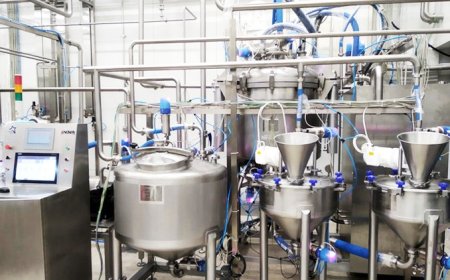The Power of Mindful Living in a Fast-Paced World

Introduction
In todays hyperconnected, always-on society, the pace of life feels faster than ever. From the moment we wake up to the moment we rest our heads at night,essentialhoodiestores we are bombarded with notifications, responsibilities, deadlines, and distractions. Amid this chaos, the ancient practice of mindfulness has emerged as a powerful antidote to modern stress and mental overload. Mindful living, once a practice confined to monasteries and meditation halls, has now found its way into homes, schools, and workplaces worldwide.
This blog explores what it means to live mindfully in the 21st century, why it's essential, and how anyone can begin cultivating a more present, intentional life without drastically changing their lifestyle.
What Is Mindful Living?
Mindful living is the practice of being fully present and engaged in each moment, with openness and without judgment. It's about slowing down and noticing the details we often overlookour breath, our thoughts, our surroundings, and even our emotions. While mindfulness is commonly associated with meditation, its actually a way of life that influences how we eat, communicate, work, and rest.
It means recognizing the automatic patterns we fall into and choosing to act with awareness instead of reacting impulsively. A mindful person doesn't necessarily have fewer problems, but they respond to challenges with clarity, calmness, and compassion. This shift in attitude can transform even the most mundane moments into opportunities for growth and peace.
The Cost of Disconnection
One of the primary reasons mindfulness has become so crucial is the growing sense of disconnection in our lives. Technology, for all its benefits, often draws our attention away from the here and now. Social media can lead to comparison and anxiety, while multitasking at work can decrease productivity and increase mistakes. Over time, this fragmented attention can result in mental exhaustion, poor relationships, and a loss of purpose.
Moreover, chronic stress has become a common feature of modern life. We are constantly thinking about the next thingemails to send, errands to run, bills to payrarely pausing to appreciate the present moment. This leads to burnout, emotional numbness, and a feeling of being on autopilot. Mindful living counters this by anchoring our awareness in the present and helping us reconnect with ourselves and others.
The Science Behind Mindfulness
Scientific studies over the past two decades have consistently shown that mindfulness has a profound impact on both mental and physical health. Researchers have found that regular mindfulness practice can reduce symptoms of anxiety, depression, and insomnia. It strengthens the prefrontal cortexthe part of the brain responsible for decision-making and emotional regulationwhile decreasing activity in the amygdala, which triggers stress responses.
Mindfulness also improves focus and cognitive flexibility, allowing individuals to handle difficult situations with greater resilience. Even brief moments of mindful breathing can lower blood pressure, slow the heart rate, and ease tension in the muscles. This evidence-based approach has led many psychologists and medical professionals to incorporate mindfulness into therapeutic settings.
Integrating Mindfulness into Daily Life
Contrary to popular belief, you dont need to spend hours meditating or retreat to the mountains to live mindfully. The beauty of mindfulness lies in its simplicity and accessibility. Anyone can begin by paying attention to their breath for just a few minutes a day. Over time, this small practice creates space between stimulus and response, allowing for more thoughtful choices.
Mindful eating is another effective entry point. Instead of rushing through meals, take time to savor each bite. Notice the textures, flavors, and how your body responds to the food. This not only enhances enjoyment but also promotes healthier eating habits and digestion.
Conscious communication is also a vital aspect of mindful living. Listening without interrupting, being present in conversations, and expressing thoughts with kindness fosters deeper relationships. Even routine activities like walking, washing dishes, or commuting can become mindful when done with full attention.
Challenges and Misconceptions
Despite its many benefits, mindful living is not always easy. Many people expect instant calm or enlightenment, but mindfulness is not about achieving a perfect state. It's about observing whatever arisespleasant or unpleasantwithout clinging to it or pushing it away.
Another common misconception is that mindfulness requires you to empty your mind. In reality, its about noticing the thoughts that arise and gently bringing your attention back to the present moment. Distractions are natural; the practice lies in returning, again and again, with patience.
Time is also a perceived barrier. However, mindfulness doesn't have to take more time; it simply changes how you use the time you already have. Its less about doing and more about beingfully and consciously.
The Long-Term Impact
As mindfulness becomes a habit, its effects ripple through every area of life. Work becomes more efficient, relationships deepen, and inner peace becomes more accessible.Essentials Shirt Many report greater self-awareness, emotional intelligence, and a sense of alignment with their values.
On a broader scale, mindful communities tend to be more compassionate, inclusive, and sustainable. Schools that teach mindfulness see improved behavior and academic performance. Workplaces that encourage mindfulness experience less turnover, better collaboration, and healthier employees.
Ultimately, mindful living helps people remember what truly matters. It shifts focus from external achievements to internal well-being. Instead of chasing happiness, we learn to find it in the present moment.
Conclusion
In a world that constantly pushes us to go faster, do more, and want more, mindful living is a radical act of presence. It is an invitation to slow down, breathe, and reconnectwith ourselves, with others, and with life itself. By embracing mindfulness, we dont escape reality; we engage with it more fully and intentionally.
Whether youre looking to reduce stress, improve your health, or simply find more joy in everyday moments, mindful living offers a path forward. It doesnt require perfectionjust a willingness to pay attention and an openness to whatever unfolds.
The journey begins now, in this very moment.


































